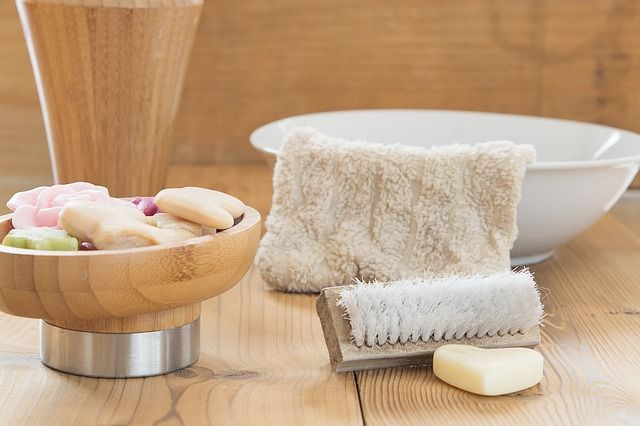Triclosan In Household Products, Soap Doesn't Threaten Human Microbiome: Study

A small study published Wednesday in the journal mSphere may partially restore the poor reputation of triclosan, an antibacterial ingredient once universally found in our household products.
The researchers recruited 13 healthy volunteers to take part in a novel eight-month-long experiment. Randomly divided into two groups, half regularly used soaps and toothpastes containing triclosan and triclocarban, while the other half was told to avoid any such products. After four months, the groups switched their roles. During each leg of the experiment, the researchers mapped out the microbial environment, or microbiome, of the volunteers’ mouths and guts, looking for any subtle changes. They also tested their blood and urine.
While the volunteers on average had more triclosan in their bodies when they were using the products containing it, the researchers couldn’t detect any substantial changes to either their gut or oral microbiomes. And they also couldn’t detect any differences in hormone levels, rebuffing earlier animal research that had shown a possible connection between their disruption and triclosan. Though some volunteers used bar soaps containing triclocarban, the authors didn’t bother to measure its presence in urine.
"We found that some organisms were changed a little bit, but there was no major blow to oral flora or gut flora," said senior author Dr. Julie Parsonnet, a professor of health research and policy at the Stanford School of Medicine, in a statement. "For people who are very fearful of triclosan, this study should be reassuring."
Triclosan, as recently detailed by Medical Daily, has become a controversial chemical in recent years. Because of the specific way it kills many, but not all, bacteria, scientists have worried that casual, low-level use could contribute to the development of antibiotic-resistant superbugs — a concern backed up by a decent chunk of evidence. The aforementioned, if less conclusive, animal studies have also led some to speculate it might have more immediate effects on our health.
Partly motivated by this research, states like Minnesota have started to ban triclosan’s use in soaps and other products not expressly approved by the Food and Drug Administration (FDA), a short list that includes Total toothpaste made by Colgate-Palmolive, the only such toothpaste on the market. In September, the FDA is likely to finalize a proposed rule requiring consumer soaps marketed as antibacterial to be rigorously vetted as safe and effective before they can reach the public, regardless of whether they contain triclosan. The chemical’s popularity has already begun to wane, though, and it’s steadily being used less and less as an antimicrobial ingredient.
Speaking of toothpaste, the study did find one noticeable change in the samples of plaque build-up taken from triclosan-using volunteers — a slight decline in the types of bacteria often responsible for gingivitis. That’s a result that makes perfect sense given earlier research showing that exact effect, which is why the Total brand of Colgate toothpaste was approved in the first place.
But while the study certainly isn’t worthless, it’s also probably not a game changer. Much of the worry over triclosan concern its possible connection to antibiotic resistance due to its abundance in the environment rather than in our bodies. And its connection to direct human harm has never been very clear.
More importantly for the public, the biggest problem with commercial antibacterial soaps isn’t that they’re potential hand grenades just waiting to go off in our bathroom sinks — it’s that they’re duds. Ample research has shown that they’re no better at getting rid of the bacteria on our hands or at preventing disease than plain soap.
Not to say nothing about the tiny sample size of the study, which makes all of its conclusions interesting but hardly concrete. Case in point, the researchers found a slight but nonsignificant association between weight gain and triclosan use, a link which earlier studies have found conflicting evidence for and against. Without many more test subjects, though, there’s really no way to tell whether that finding is anything more than a fluke.
As Parsonnet notes, it’s likely that the average person and their good bacteria are perfectly safe hanging around triclosan and its cousin triclocarban. But unless you enjoy wasting an extra dollar for every time you run out of soap and dishwashing liquid, you’re better off sticking to the generic versions.
Source: Poole A, Pischel L, Ley C, et al. Crossover Control Study of the Effect of Personal Care Products Containing Triclosan on the Microbiome. mSphere. 2016.
Published by Medicaldaily.com



























